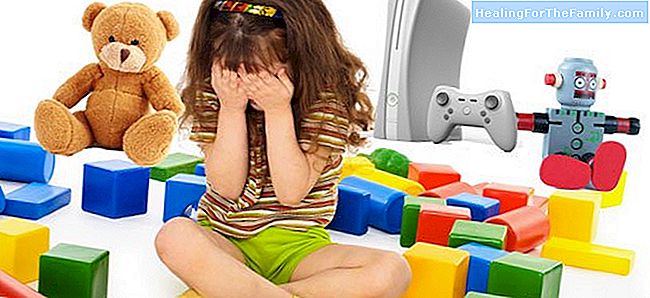What can happen if we overstimulate the children
In recent times we hear a lot about child stimulation, early stimulation, etc ... and we must be clear about what stimulation is and is not. When we talk about stimulating the baby, we talk about facilitating spaces and contexts of learning, of awakening their senses, the curiosity of the child, fac
In recent times we hear a lot about child stimulation, early stimulation, etc ... and we must be clear about what stimulation is and is not.
When we talk about stimulating the baby, we talk about facilitating spaces and contexts of learning, of awakening their senses, the curiosity of the child, facilitating varied experiences, but also of allowing him to discover for himself and go little by little maturing and growing.
Stimulating does not mean speeding up your development, nor acquiring certain skills ahead of time, nor continuously offering activities and materials to "develop faster" or "learn more". Stimulating implies knowing and respecting the evolutionary moment of each child, and giving him what he needs and what he can do by age.
What is over stimulation and what are the risks?

We talk about overstimulation or hyperstimulation when we provide the child with stimuli superior to those that he can tolerate in relation to his age or in such quantity that he can not process them properly. Or when we pretend that the baby or child is always active and doing things without assessing the importance of the child being calm and calm. If we provide games or toys with lots of noise, lights, buttons, images, or when we sit without limit in front of the TV or tablet watching drawings to be entertained.
According to the results of a study conducted by the research group "Neuroplasticity and Learning", of the University of Granada (UGR), coordinated by Milagros Gallo, sobre overstimulation can affect learning in a negative way . According to this study, "the excess of stimuli generates a tolerance level in children, that is, there comes a time when stimuli no longer generate the same satisfaction, so it is necessary to look for more", which can lead to to children "too restless", almost hyperactive, but which would be better to say "hyperstimulated".Overloading the brain with stimuli also means that the brain does not know which stimuli to attend to, and that, in the absence of stimuli, the brain does not activate, that is, the level of stimulation must be very high so that it is placed in March. Which translates into difficulties or attentional problems.
Another risk is that children get frustrated, if for example we provide a toy or activity for which you are not prepared, you can not do it, and
you will be frustrated because you can not complete it or do it correctly and end up having a concept negative self, which will influence your self-esteem. In summary, riesgos the risks of overstimulation are attention difficulties, too "restless" children and frustration.
Therefore, if we want to stimulate our baby, it is important to know what the child can do at any given moment, and to respect both the child's character, as well as his / her interests and also to value the child's calm times.












